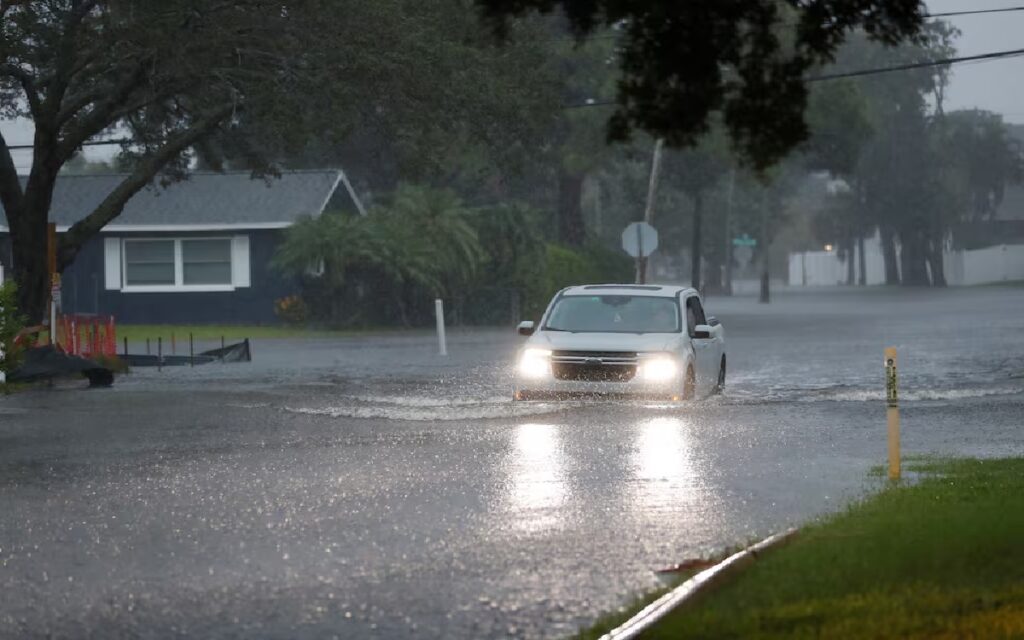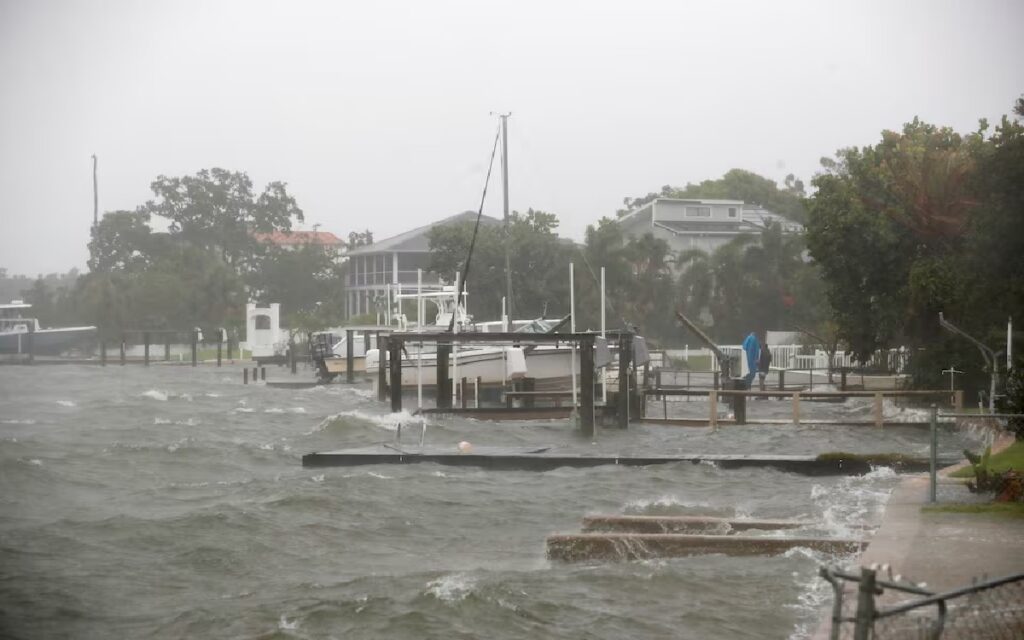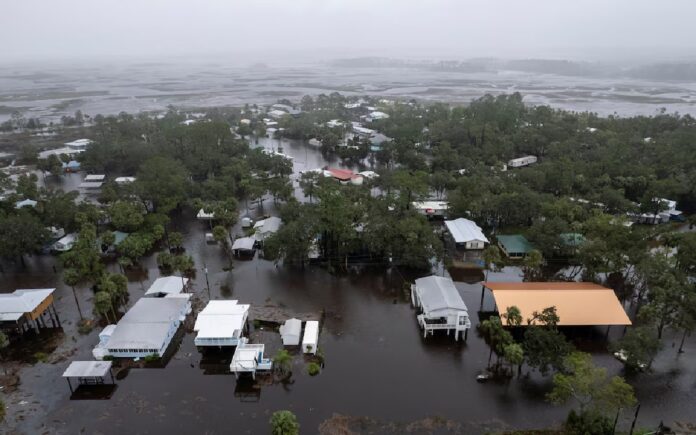Tallahassee: Tropical Storm Debby unleashed heavy rains across northern Florida on Monday, resulting in multiple fatalities as the downgraded hurricane advanced toward Georgia and the Carolinas. The storm is expected to bring a week of intense rainfall and flooding to the region.
Debby made landfall as a Category 1 hurricane around 7 a.m. (1100 GMT) near Steinhatchee, about 70 miles (115 km) southeast of Tallahassee. The storm initially struck Florida’s Gulf Coast with hurricane-force winds reaching 80 mph (130 kph), but wind speeds diminished as the storm moved inland.
The storm’s impact included fatal incidents, with a 12-year-old girl and a 13-year-old boy killed by fallen trees in Levy County. A 19-year-old man was killed near Valdosta, Georgia, when a tree fell on his porch. Other casualties involved a truck driver who lost control of an 18-wheeler on Interstate 75 and ended up in the Tampa Bypass Canal, and a 38-year-old woman and her 12-year-old son who died in a crash in Dixie County due to storm conditions.

By Monday night, approximately 150,000 Florida customers were without power, down from a peak of 350,000, according to Poweroutage.us. Flight disruptions were significant, with numerous cancellations affecting Florida airports. Vice President Kamala Harris postponed a planned campaign stop in Savannah, Georgia, as reported by the Savannah Morning News.
Rescue operations were underway, with more than 500 people rescued from floodwaters in Sarasota and about 180 in Manatee County. The National Hurricane Center indicated that Debby would traverse Georgia and move offshore into the Atlantic Ocean by Tuesday night, likely re-strengthening and making a second landfall near Charleston, South Carolina.
As of late Monday, the storm was near the Florida-Georgia border, about 35 miles (60 km) west of Brunswick, Georgia, moving northeast at 7 mph (11 kph) with sustained winds of 45 mph (75 kph) and higher gusts. Forecasts predict “catastrophic flooding,” with some Atlantic coast areas potentially receiving 20 to 30 inches (76 cm) of rain by Friday morning. Governors of Georgia, South Carolina, and North Carolina have declared states of emergency in preparation for Debby’s impact.

Rainfall totals in central Florida had already reached eight to 16 inches by Monday afternoon. “This is going to be an event that is going to be probably here for the next five to seven days, maybe as long as 10 days, depending on how much rainfall we get,” said Kevin Guthrie, Executive Director of the Florida Division of Emergency Management.
Officials in Georgia and South Carolina are preparing for significant flooding. South Carolina Governor Henry McMaster warned of potential flooding in previously unaffected areas, calling it “the most water we’ve seen in a long while.” Savannah Mayor Van Johnson predicted a “once in a thousand year” rain event, anticipating the creation of “islands in the city”.
Also Read | IOC Demands New Global Boxing Body for Inclusion in LA 2028 Games
Debby, which strengthened over the exceptionally warm Gulf waters as it moved along Florida’s Gulf Coast, recalls the impact of Hurricane Harvey. Downgraded to a tropical storm upon moving inland, Harvey caused severe flooding in Texas, including Houston, with about 50 inches of rain and $125 billion in damages.
Climate scientists link the increased intensity of storms to global warming caused by fossil fuel consumption, which has elevated ocean temperatures. The last hurricane to directly hit the Big Bend region was Hurricane Idalia, which made landfall as a Category 3 storm in August 2023, causing an estimated $3.5 billion in damages. Florida Governor Ron DeSantis noted that Debby’s initial effects were “modest” compared to Idalia.
The 2024 hurricane season, which began on June 1, is anticipated to feature numerous Atlantic hurricanes, including four to seven major ones. This would surpass the record-setting 2005 season, which included Hurricanes Katrina and Rita. Only one other hurricane, Beryl, has formed in the Atlantic this year. It became the earliest Category 5 storm on record before impacting the Caribbean and Mexico’s Yucatan peninsula, and eventually striking Texas as a Category 1 storm with winds up to 95 mph.



